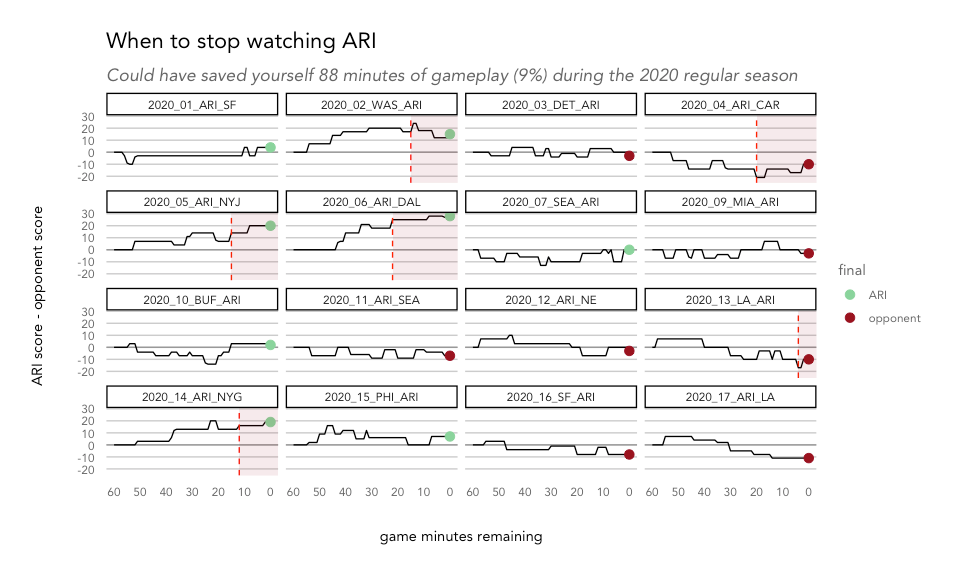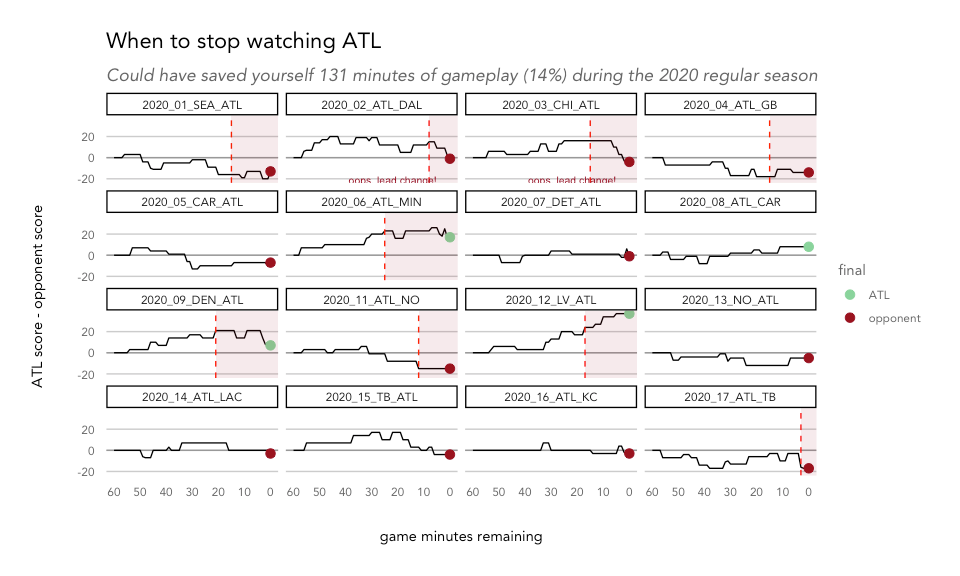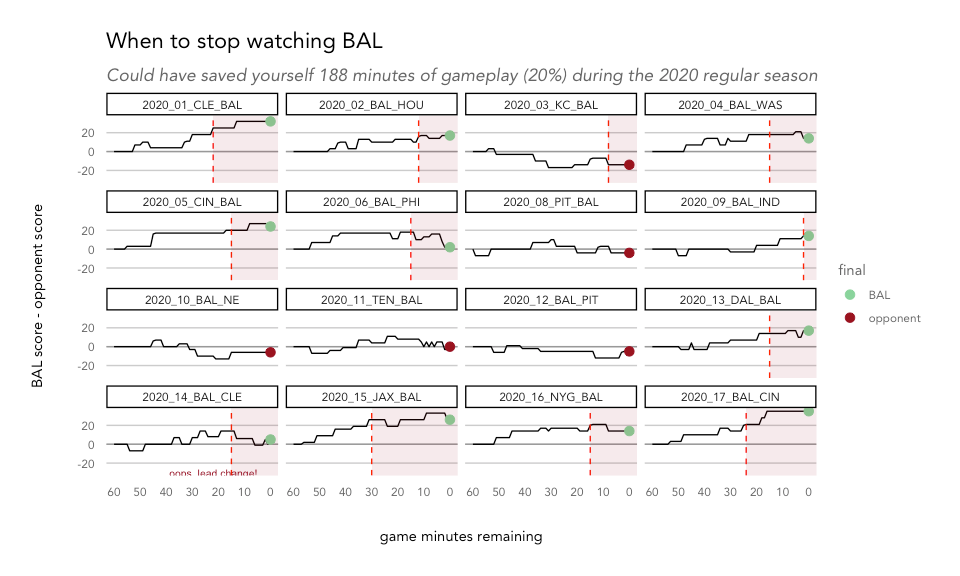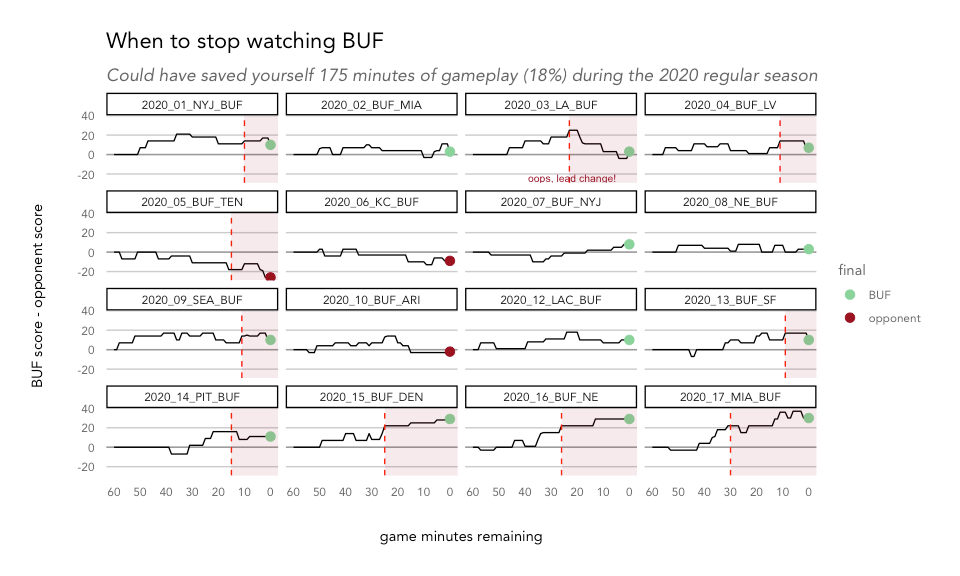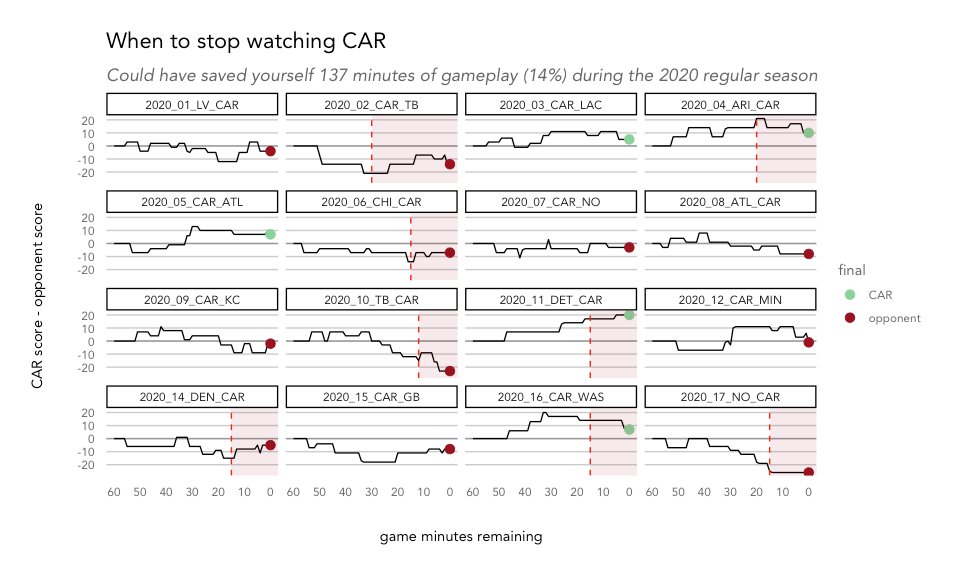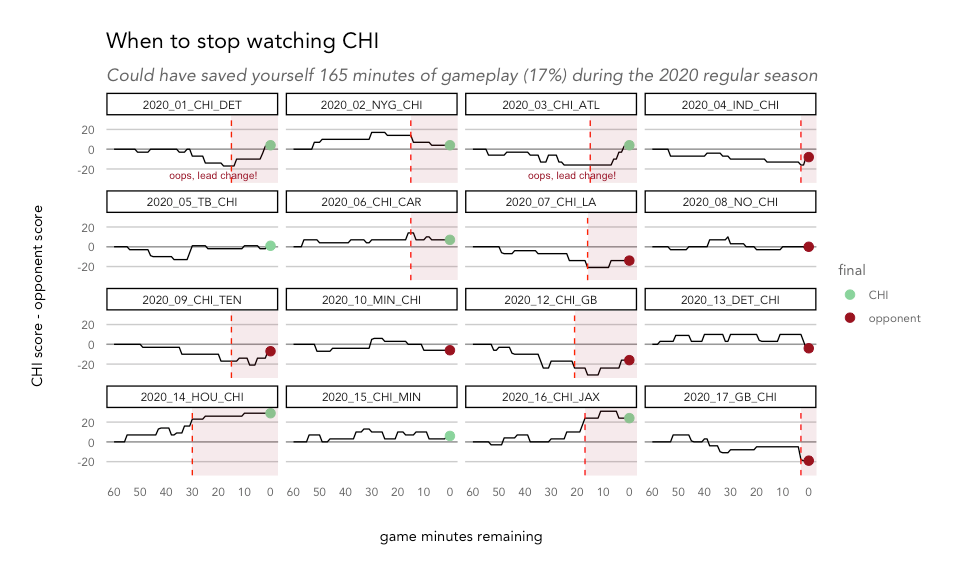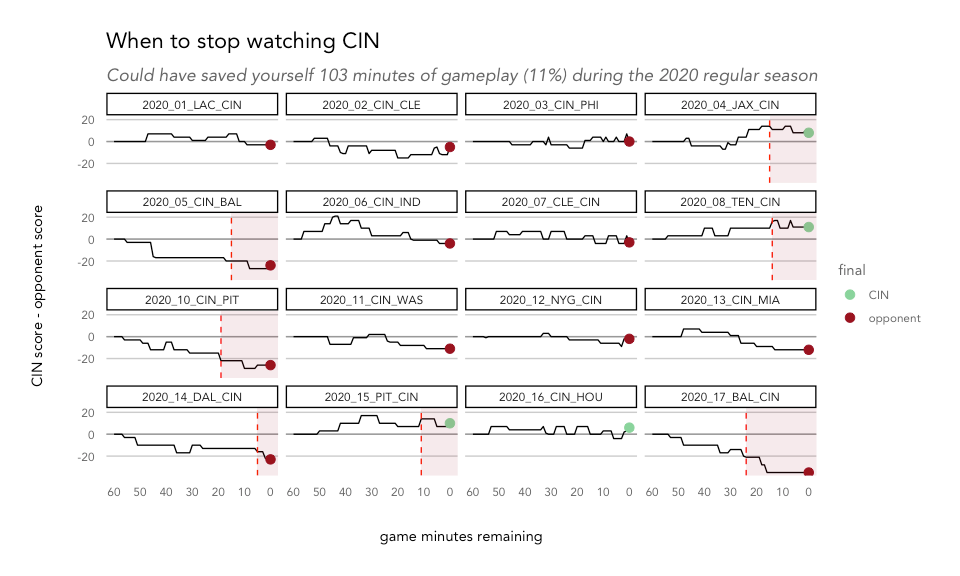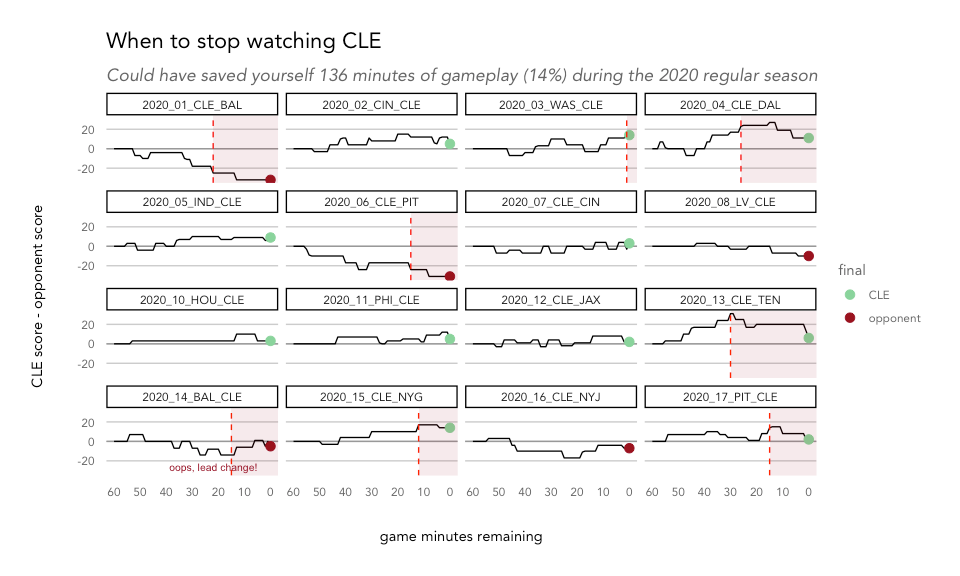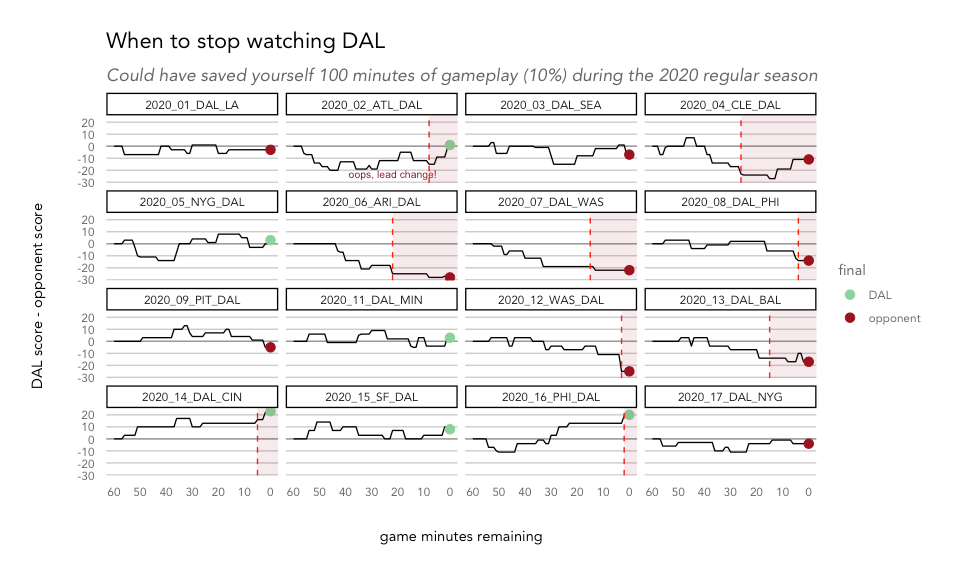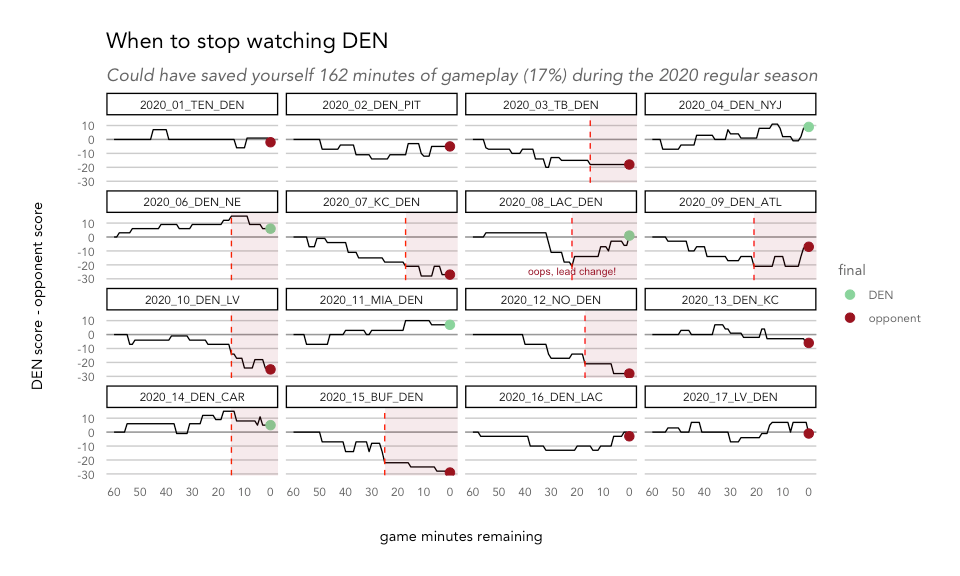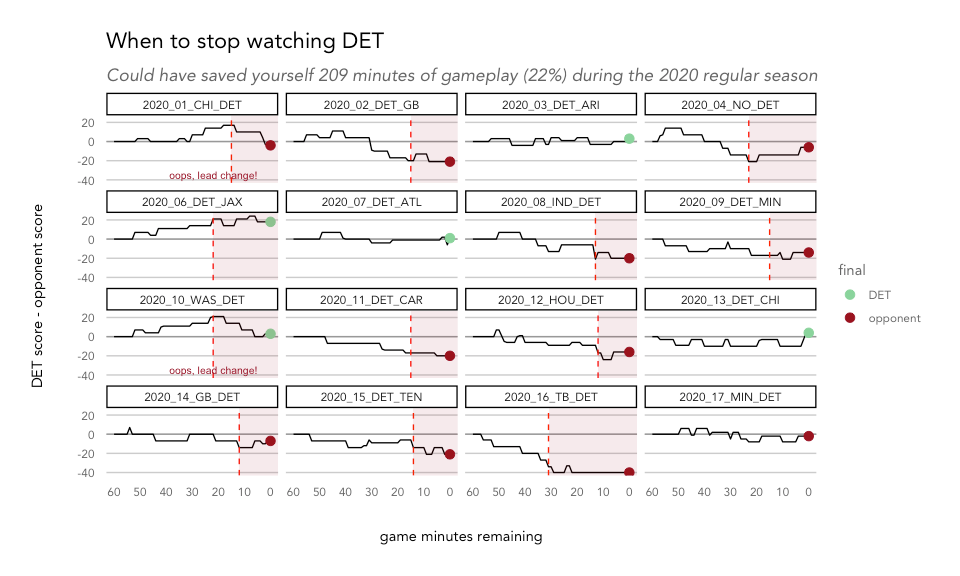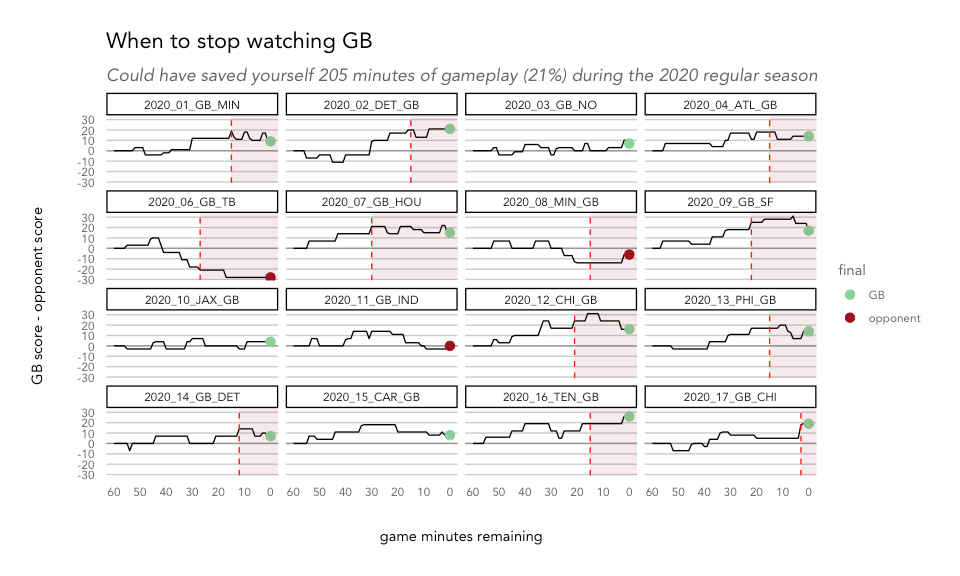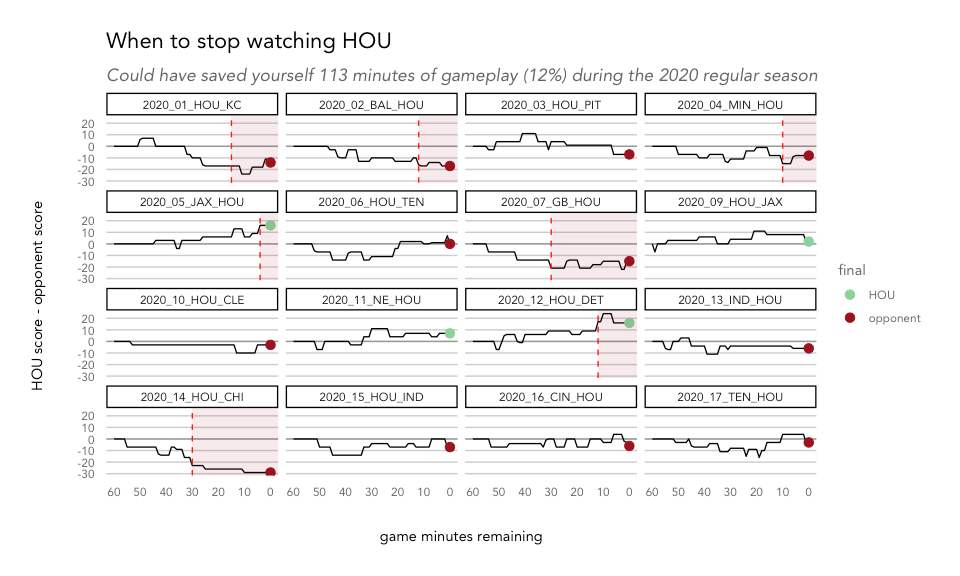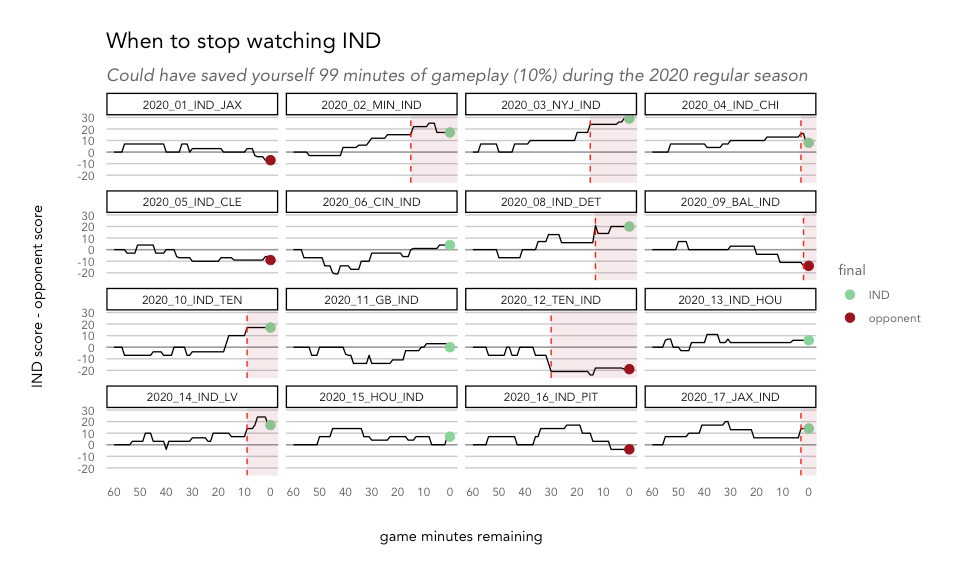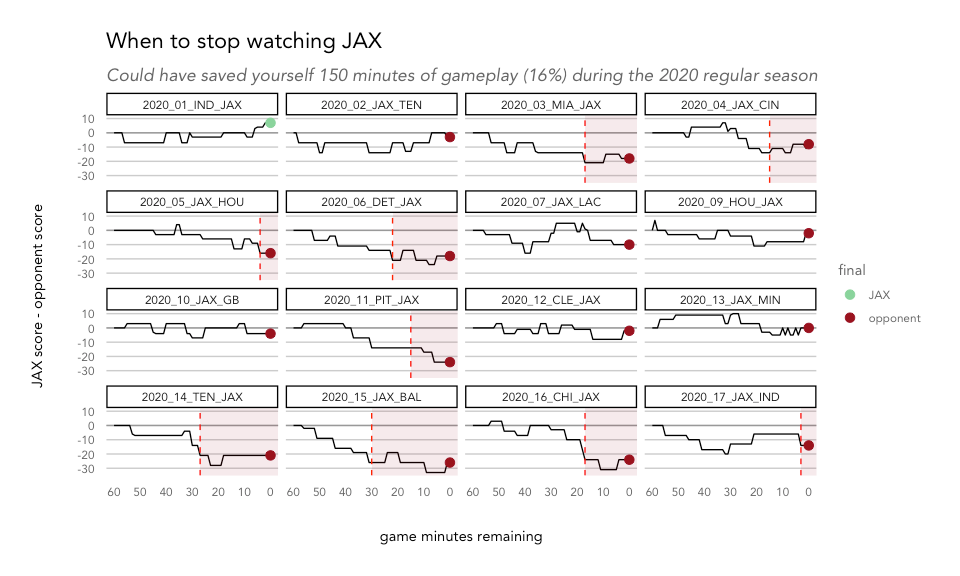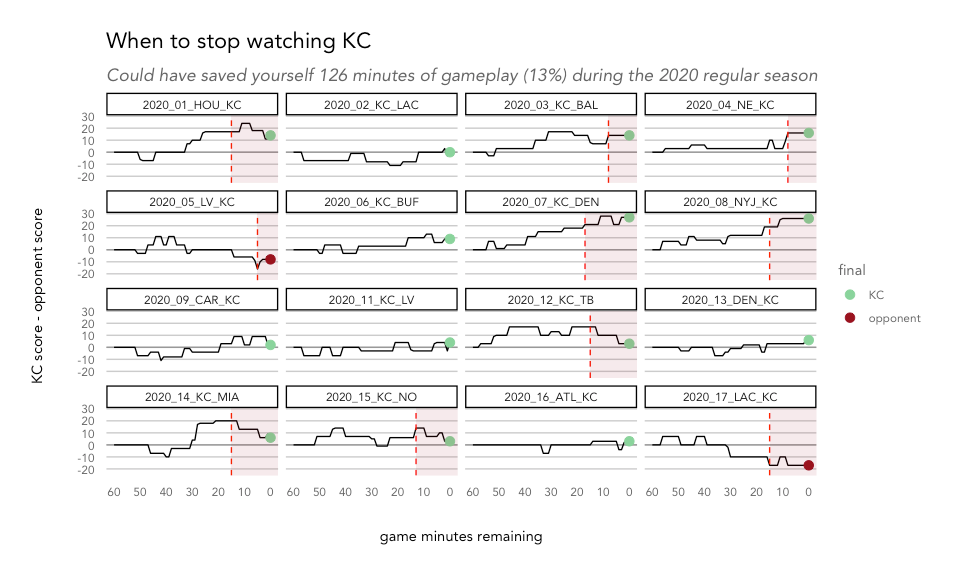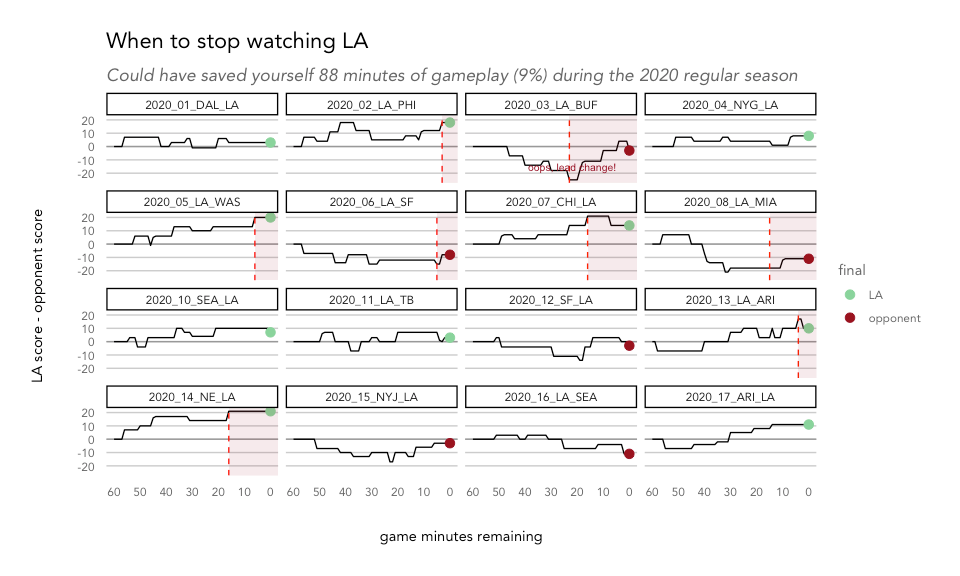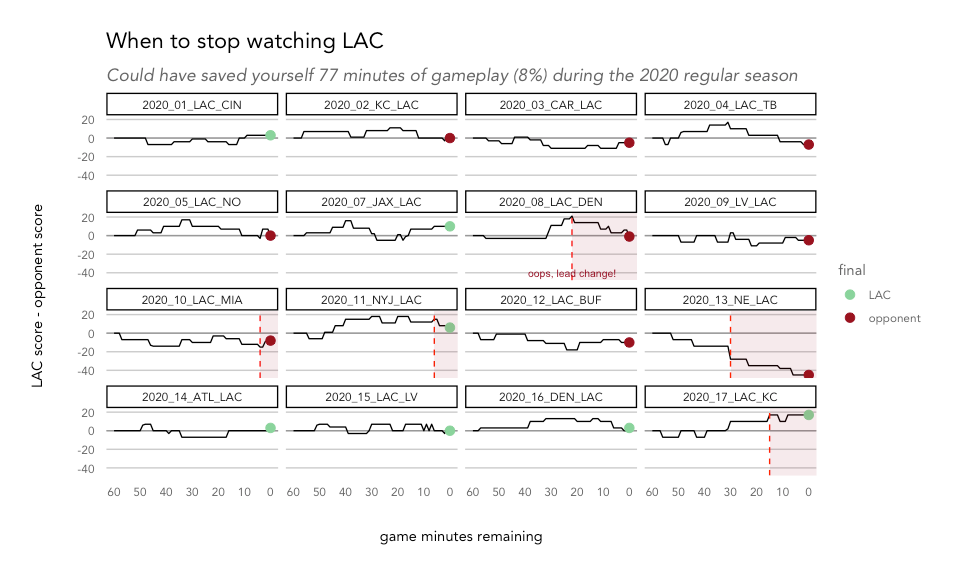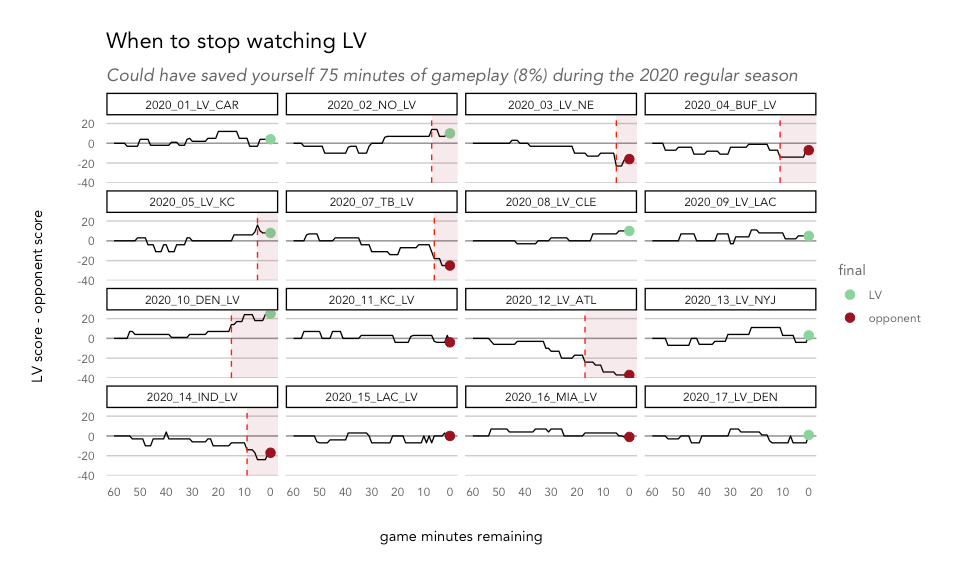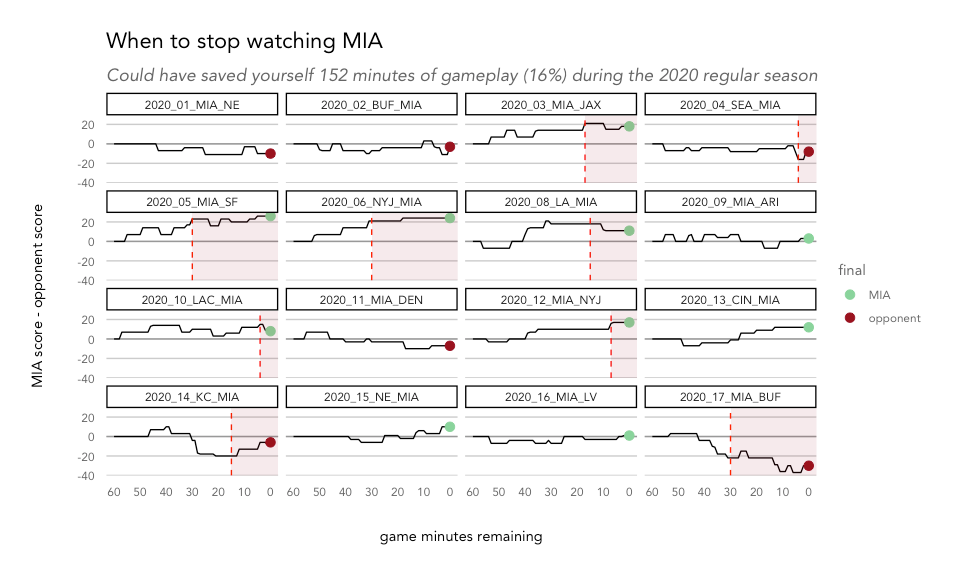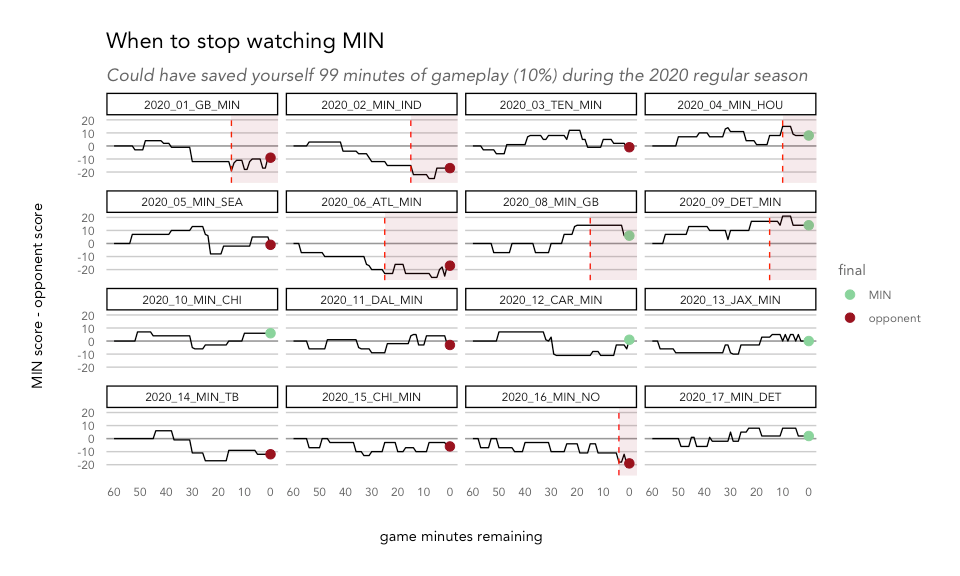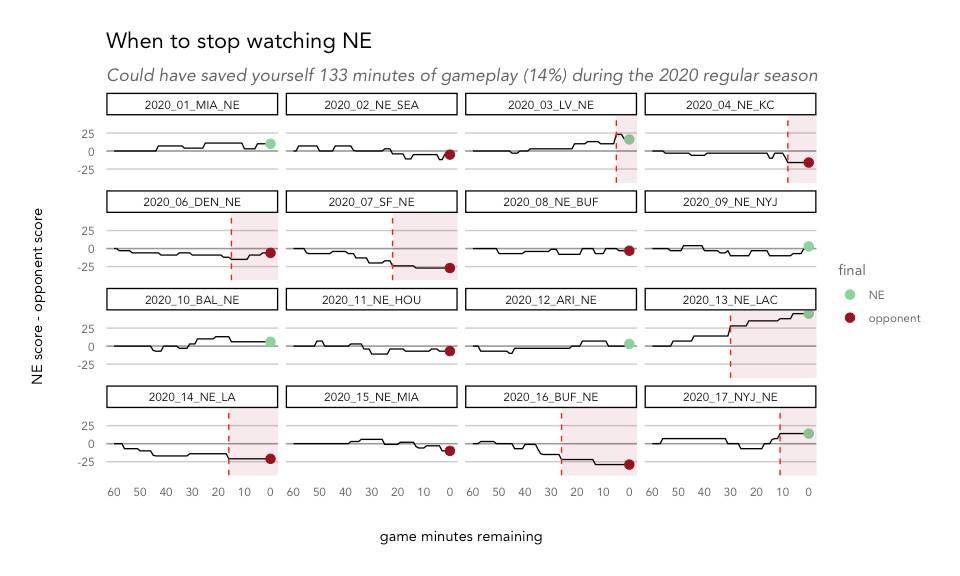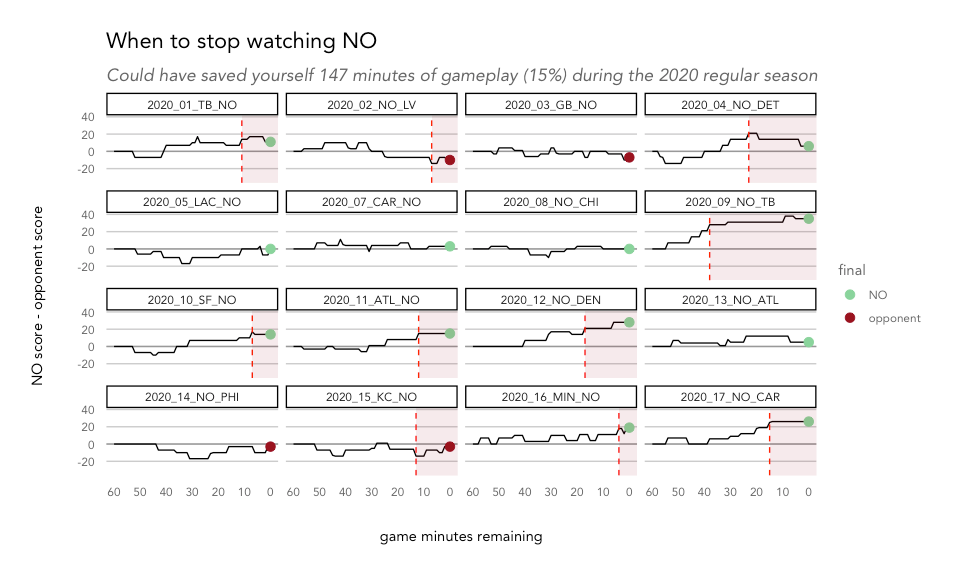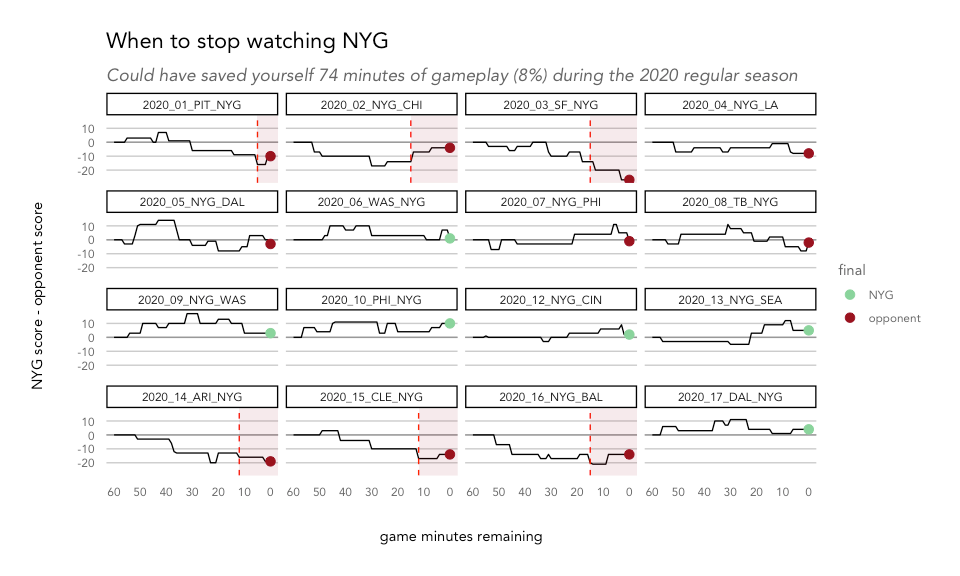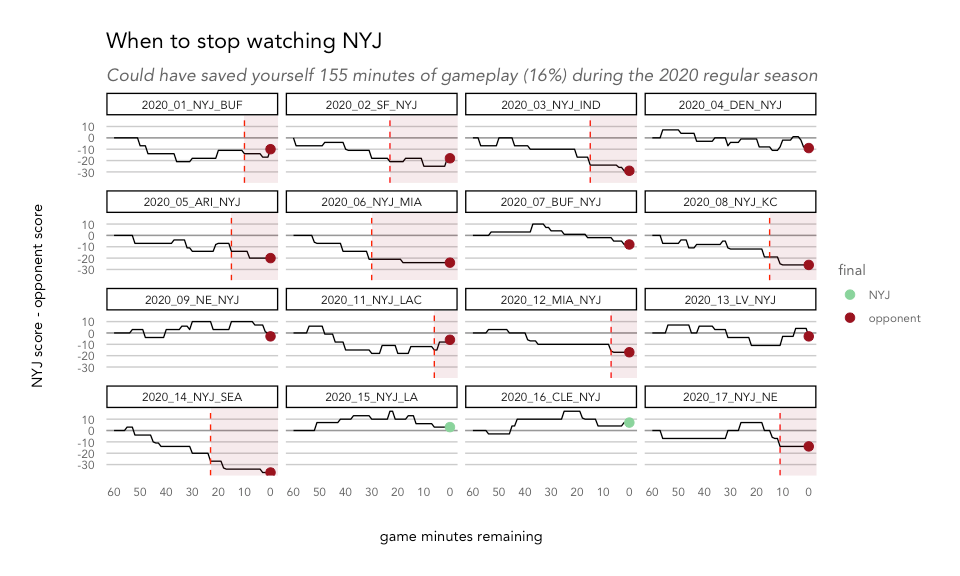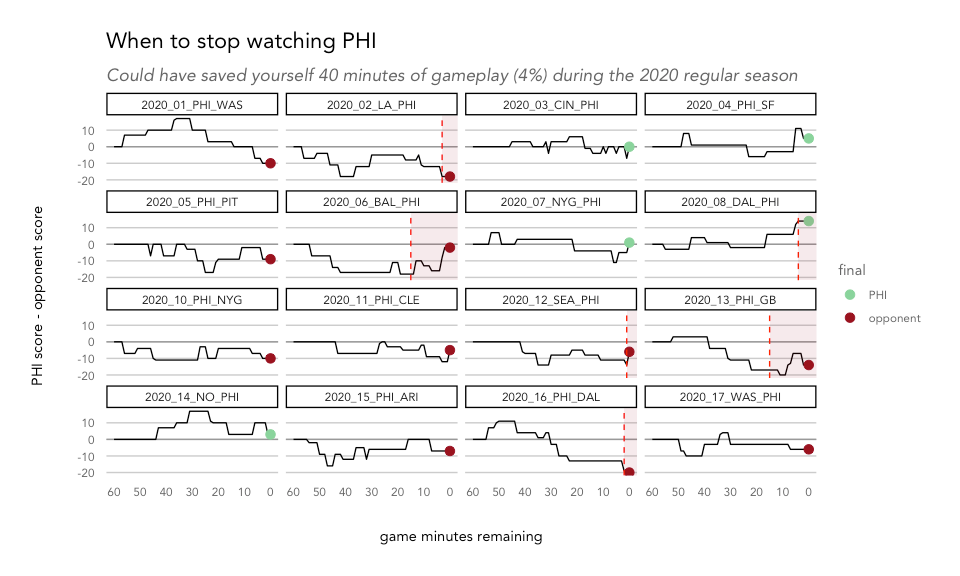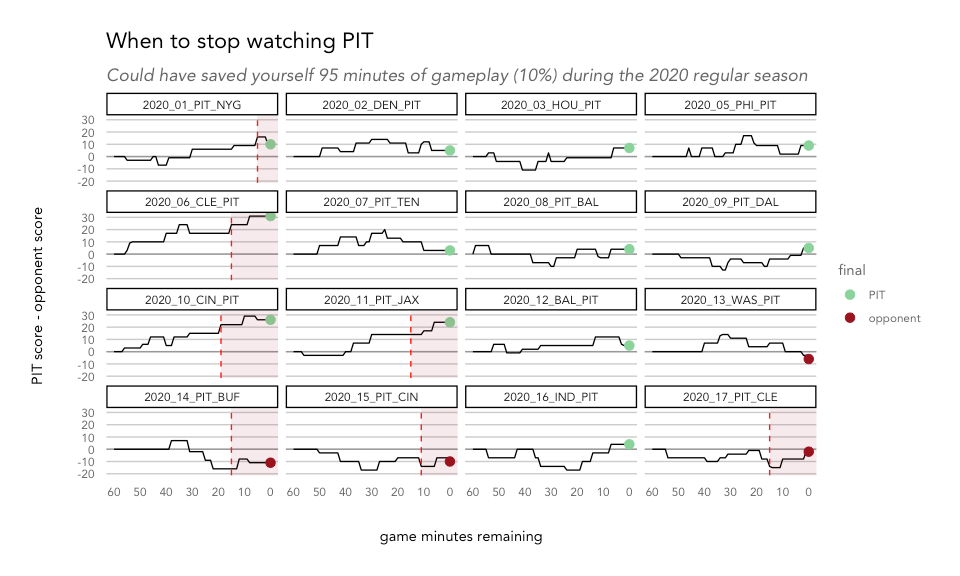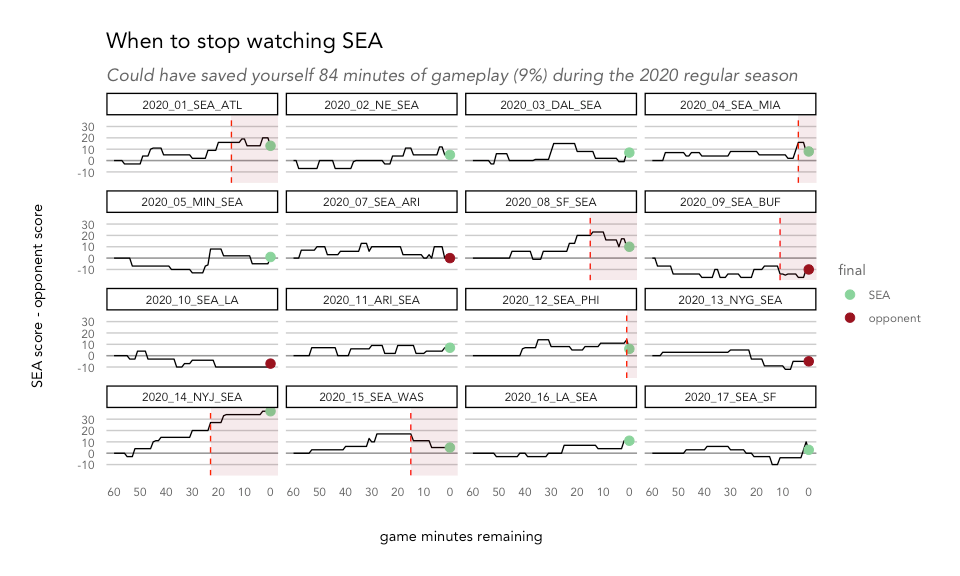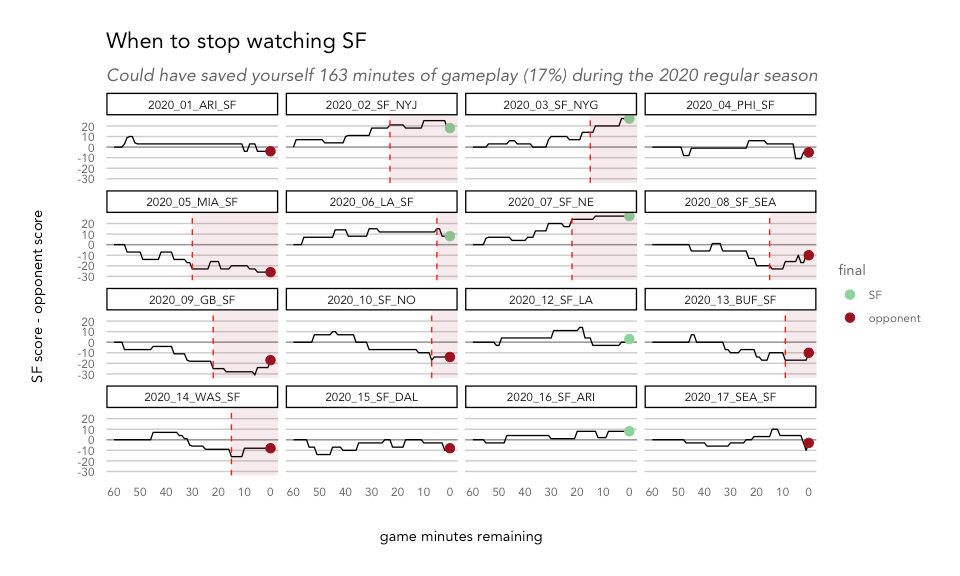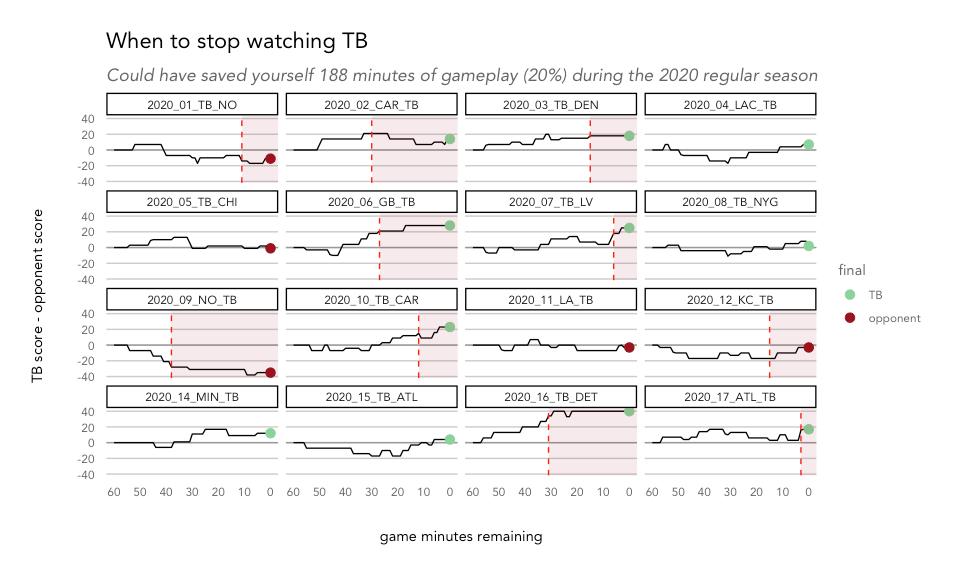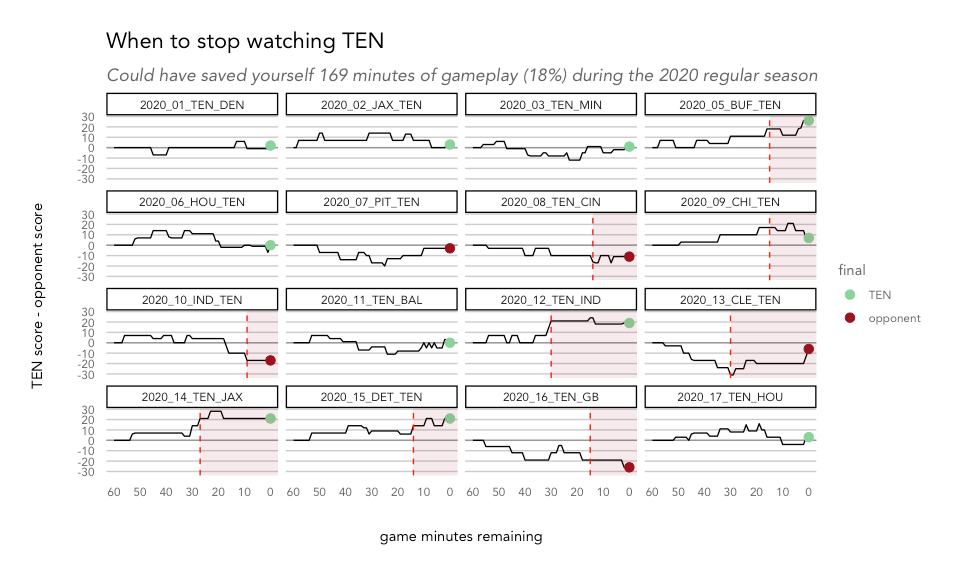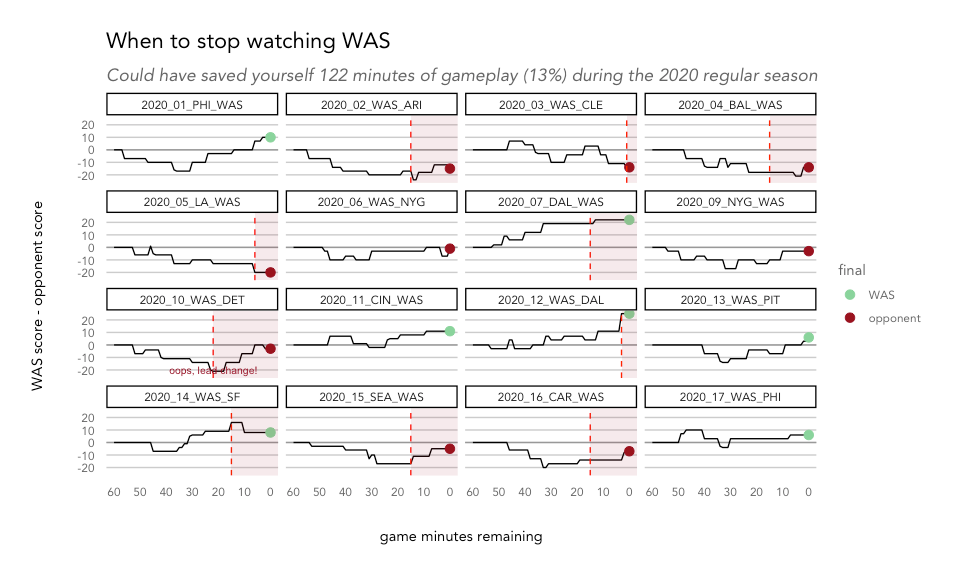Warning: things are about to get petty.
With COVID rescheduling sporting events left and right, it’s felt like there’s a new football game on every night of the week this season. For avid football fans, this is fantastic: the games are spread apart for easier fantasy team tracking more distraction from quarantine life and the news. For me, not what you would call a football “fan,” this is not so great.
Bored of endless pass replays, timeouts and the slowest moving clock ever, I challenged my partner: what if I could use data to tell you when the game is basically decided (so that we can shut it off) and switch to our 11th viewing of Parks & Rec?
He laughed. But then he conceded that there must be a point of no return or a particular set of conditions that all but guarantee that the current leader would win the game. And in that event, we could, in fact, shut it off.
In other words, how likely is an upset if it’s halfway through the 4th quarter and your team is ahead by 21 points? With data via the R package nflfastR, I crunched the minute-by-minute scores of 10 seasons' worth of NFL games to find out.
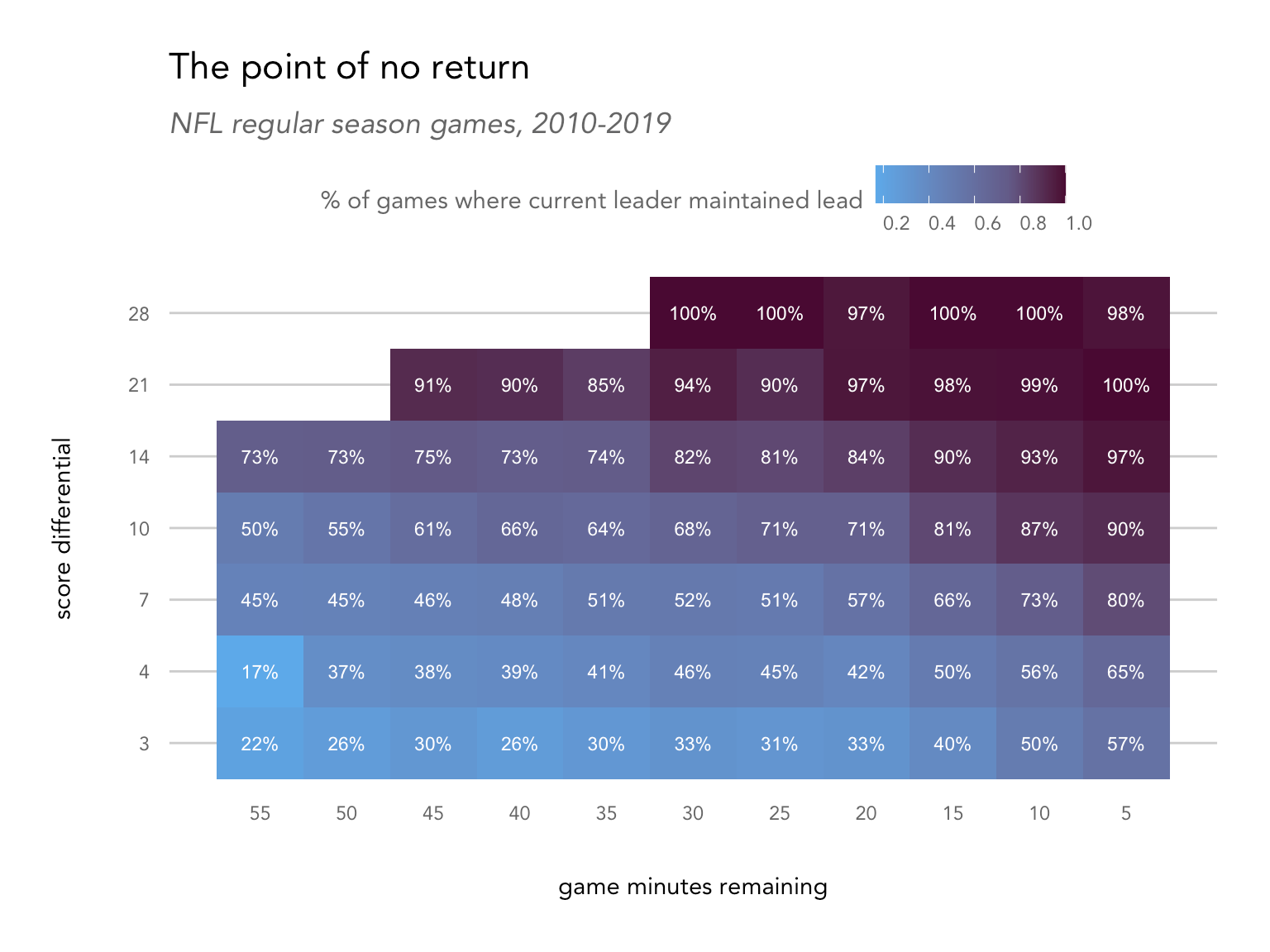
With a 7-point score differential and 55 minutes left to play, 45% of regular season NFL games played 2010-2019 saw the leading team maintain that lead for the entire game. YAWN.
Let’s say you want to be 90% sure you won’t miss a comeback. Based on the historical percent of games where no further lead change happened, you could stop watching if there was 28-point lead at any point, a 21-point lead in the second half, or a 14-point lead with 10 minutes or less to play. Let’s apply that rule to the 2020 season and see how much we would have missed (and how many hours you’d get back).
You could have saved 2,074 minutes of gameplay (34.5 hours) by turning off 139 games when the point differential got absurd. That’s 13.5% of total gameplay minutes from 54% of the games in this season.
One game minute converts to at least 3 real minutes, so not only could you watch the entire series of Parks and Rec (clocking in at 42.6 hours) twice over, but you would have only missed 7 games were the leading team didn’t keep the lead for every remaining minute. Of the games you could have stopped watching early, you would have basically missed nothing in 95% of them. Plus, in 3 of those 7 games, the team winning when you changed the channel got the lead back and then went on to win anyway.
You probably weren’t trying to watch 100% of each of the 268 games in this season, but maybe just your favorite team’s games. How did they fare? Were the games close enough to watch the full thing, or were they boring blowouts?
Detroit and Green Bay fans could have saved more than 20% of gameplay minutes this season, but for different reasons: Detroit was losing most of the time while Green Bay was winning. Two games flipped for Detroit (one surprise loss after a big lead, and one surprise comeback after a big lag), but Green Bay's all ended as expected.
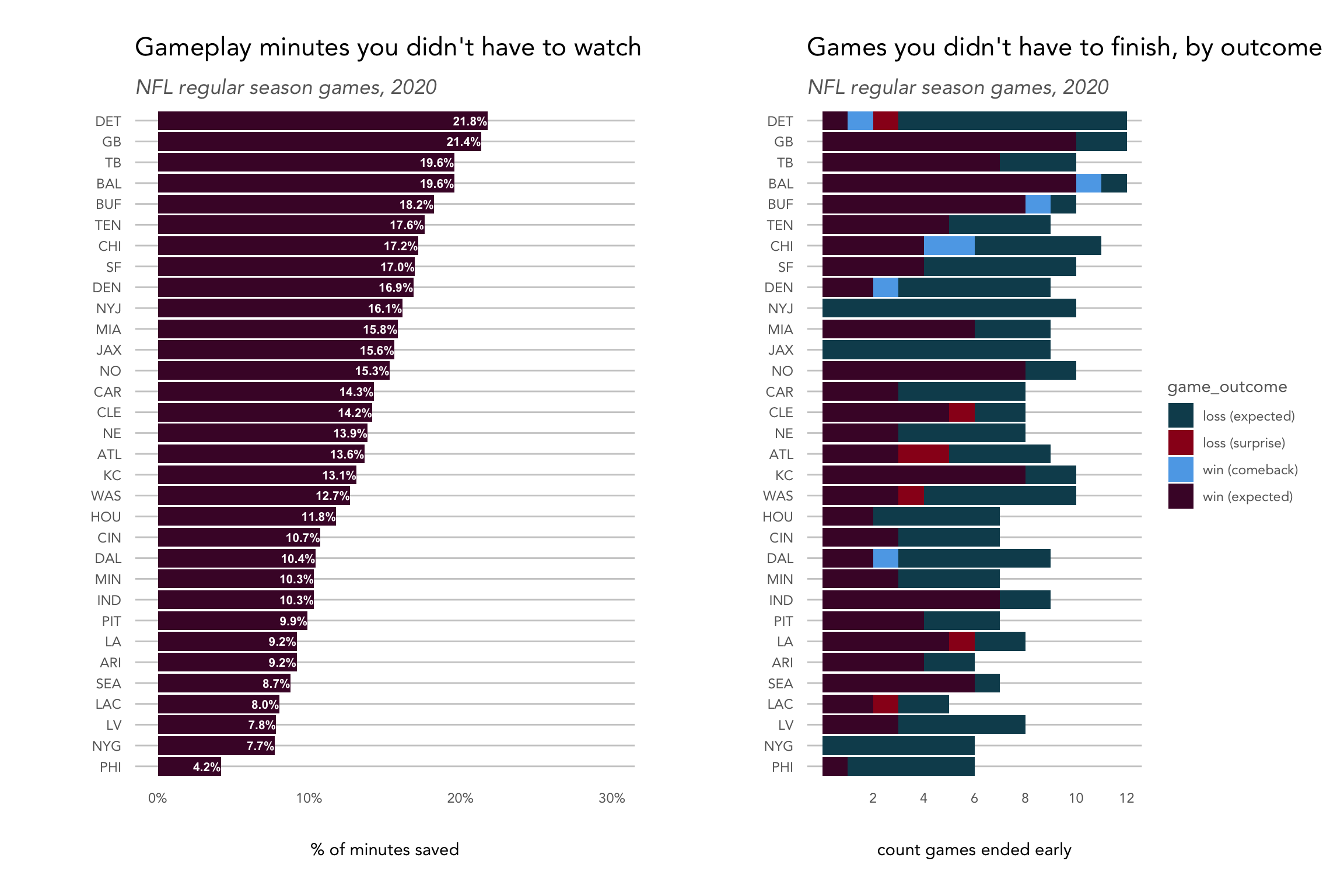
Scroll to find your team to see how much time you could have saved this season.
***
